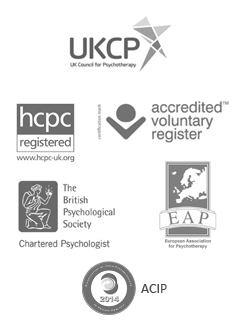Interested in Friends with Instructors
Request a Question of Your Own!
Problem from the Reader
I haven’t had many friends since I was a young child, and when I started being bullied, that amount decreased to zero. When I moved to a new class and made companions, I kept that routine just in case my teachers decided to break up with me. I had to make friends with them, and over time, that’s what I became accustomed to doing. Then, whenever a professor doesn’t like me, it keeps me up at night worrying about potential mistakes. I always want to be there for my beloved teacher to support them and ease any anxiety they may be experiencing. However, whenever I make a mistake or feel like I’m bothering them, it’s disastrous, and I feel as though I am bringing down the god. So, my inquiry is:
Is it bad to hold my teacher in such high regard and to aspire to friendship with them beyond simple friendliness? If I keep my distance?
Response from a psychologist
It is only natural to love professors, to want to win their favor, and even to hope to become friends with them. It is simple to fall in love with teachers because they frequently possess qualities we wish for in ourselves, such as compassion, warmth, wisdom, compassion, and warmth. Instructors also pay attention to us, particularly when we effectively respond to questions or put forth effort. However, there are times when we overestimate the significance of the interest, falsely believing that our relationship with a teacher is unique from everyone else’s. All of these feelings and thoughts are normal; what matters is how we handle them and what we do with them.
When peers have not been as accepting( and have instead bullied ), I can understand how instructors have been particularly kind to you and how you feel their support and friendship. We often find that we have a lot more in common with our educators when we find it difficult to relate to people our own time( or when they have trouble relating to us ). However, just as it’s crucial to have our faculty and other reliable people serve as our safety traps( much like you did when moving to a new school ), we also need to keep learning new strategies for interacting with and developing friendships with people our own time. While some teachers may be able to assist with these skills, it is more common to find specific tools for facilitating friendships and peer relationships from a reputable consultant at the college or perhaps an authorized therapist or psychologist outside of the institution.
Try website counseling to get physically matched.
( Read our crucial explanation below. )
People may become frightened or flustered around authority figures( like teachers) when they are worried about what they think of them, and they may even put them on a pedestal as you described. This can occasionally be a sign of social shyness or anxiety problem. If this is the case for you, a skilled mental health professional can help you identify it and provide organized strategies to make your interactions with teachers and other authority figures more reasonable. Students’ jobs are to listen to their professors and make the most of the lessons they are given, while teachers’ responsibilities include assisting students in learning. When we start to misinterpret the marriage as being closer, we cross lines that are crucial for ensuring that kids learn.
You even mentioned wanting to support your professors at all times to ease their stress. It would be beneficial for you to work on this crucial edge. No child should assist in reducing stress in individuals; that responsibility belongs to other people with whom they have relationships and friendships that are appropriate for their age. It’s possible that a tutor gets irritated because they see this barrier being crossed. It is appropriate to have a good relationship with savvy by paying attention to the teacher, asking for assistance with school-related issues( both the learning materials and peer issues ), and following their instructions.
Yes, wanting an adult-like connection with your instructors can be harmful, to answer your question. Consider the good restrictions described below rather than viewing it as distancing. Consider how you can channel your need for encouragement and friendliness into your own peer interactions rather than those with your instructors. My guess is that once you start experimenting with putting more effort( with consultant assistance if necessary ) into your same-age connections, you will get along better with your professors, care less about them, and feel better about yourself as well.
Learn the Important Disclaimer carefully.
https://askthepsych.com/atp/2016/01/19/wanting-friendships-with-teachers/
To consult a doctor, all copyrights for this content are reserved.

